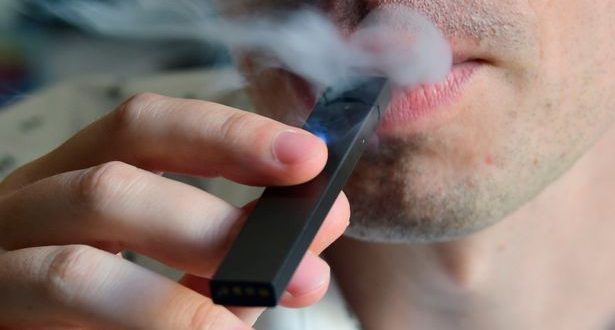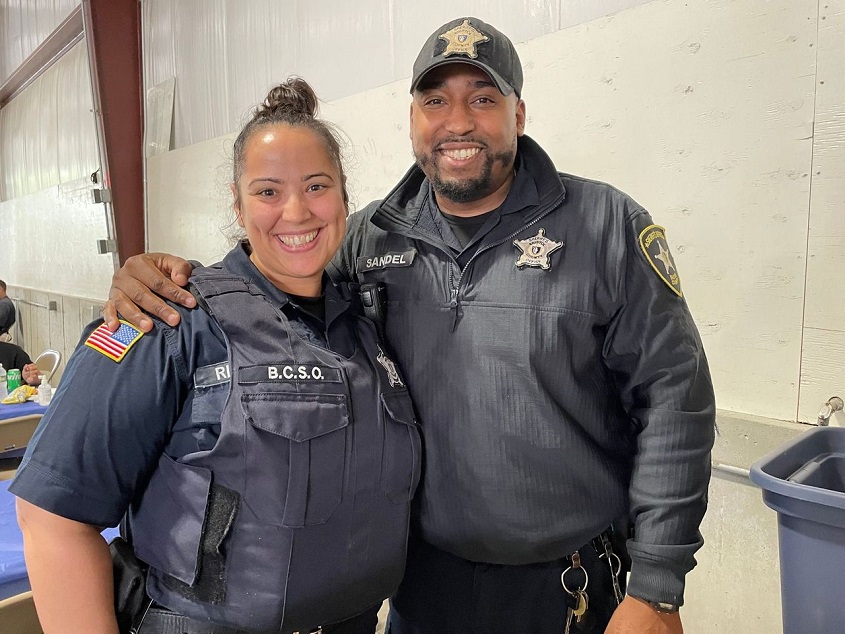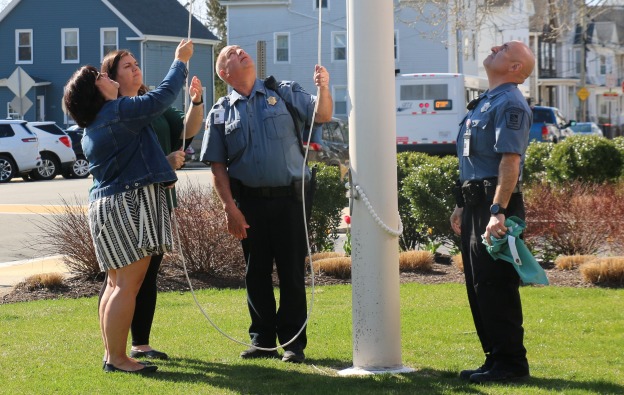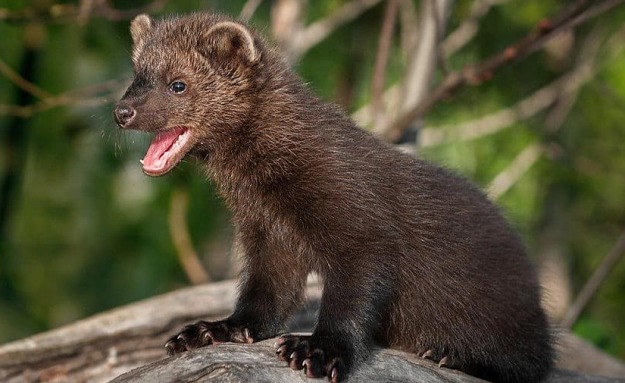Attorney General Maura Healey announced today that her office has sued JUUL Labs Inc. for what she feels created a youth vaping epidemic by intentionally marketing and selling its e-cigarettes to young people. Based on multiple depositions and hundreds of thousands of pages of company documents, AG Healey’s lawsuit reveals new facts that have not previously been made public about JUUL’s youth-oriented advertising campaign in 2015.
In a lawsuit filed in Suffolk Superior Court today against JUUL Labs Inc. and its predecessor entity Pax Labs Inc. (together, “JUUL”), the AG’s Office alleges that the company illegally advertised and sold nicotine products to underage youth and created an epidemic of nicotine addiction among young people. The lawsuit demands that JUUL pay for the costs associated with combating this public health crisis affecting young people across Massachusetts.
“JUUL is responsible for the millions of young people nationwide who are addicted to e-cigarettes, reversing decades of progress in combatting underage tobacco and nicotine use,” said AG Healey. “Our lawsuit sheds new light on the company’s intent to target young people, and we are going to make them pay for the public health crisis they caused in Massachusetts.”
AG Healey was the first attorney general to announce an investigation into JUUL in July 2018. Today’s lawsuit provides the first real window into JUUL’s original marketing plan, and shows that, according to Healey, JUUL intentionally chose models and images that appealed to young people, that the company advertised its products on websites geared toward kids, and that JUUL shipped e-cigarettes to underage youth who ordered them directly from JUUL online.
Here is a list of Healey’s findings according to a release.
The AG’s investigation focused on the launch of JUUL’s e-cigarette in 2015, when the company created an advertising and marketing campaign that explicitly identified its target audience as young people who were fashionable, urban, and social. According to the AG’s lawsuit, JUUL rejected an initial marketing proposal to present itself as a technology company with a target audience of adult smokers already addicted to nicotine and instead chose the “Vaporized” advertising campaign developed by JUUL’s artistic director and inspired by sexually provocative images of young models and celebrities. According to the AG’s lawsuit, even though JUUL employees and its board of directors were concerned that models photographed for the campaign appeared too young, they used them anyway.
JUUL placed their advertisements on millions of websites, in mobile applications, in physical retail stores, in print, and on social media platforms used by young people, like Instagram, Facebook and YouTube. The company also used the images and videos of these models in an electronic billboard installation in Times Square in New York City. The company supplemented these images with pictures of the young people it recruited to attend its launch party in 2015.
The AG’s lawsuit also makes new allegations that JUUL purchased advertising space for its Vaporized Campaign images on websites whose primary audiences are underage consumers, some even as young as children in elementary school, such as Nickelodeon, Nick Jr., The Cartoon Network, and Seventeen Magazine. JUUL also purchased advertisements on a range of other websites designed for kids, including websites to help middle school and high school students develop their mathematics and social studies skills, including coolmath-games.com and socialstudiesforkids.com.
JUUL attempted to recruit celebrities and social media influencers with large numbers of underage followers, such as celebrities like Miley Cyrus, Cara Delevingne, Kristen Stewart, and social media influencers Luka Sabbat and Tavi Gevinson. JUUL gave out hundreds of free e-cigarettes to celebrities and social media influencers to promote awareness of the JUUL brand and e-cigarette products. JUUL targeted influencers who were fashion bloggers, stylists, celebrities, and affiliated with certain television programs, networks, or movies filmed or produced in New York City and Los Angeles. JUUL also inspired competitors like Eonsmoke, who AG Healey also sued, to launch their own copycat JUUL products, using hashtags and catchphrases to sell e-cigarettes in an array of sweet flavors with ever-increasing concentrations of nicotine. JUUL sold its own flavors that were particularly appealing to young people such as mango, crème brulee, coco mint and cool cucumber, and JUUL’s advertisements often made no mention of nicotine.
From the outset of the Vaporized Campaign, JUUL collected the email addresses of visitors to its website for its email marketing list, through which it promoted JUUL products and offered specials and discounts. The AG’s investigation revealed that JUUL sent these emails to addresses associated with consumers who had failed or didn’t complete JUUL’s age verification process. According to an analysis commissioned by JUUL in the summer of 2017, approximately 40,000 email addresses on its email marketing list were associated with records of individuals who had failed JUUL’s own age verification process and 83 percent of the approximately 420,000 email addresses on JUUL’s marketing list couldn’t be matched with the record of an individual at least 18 years old. JUUL nevertheless continued to send marketing emails to this list for a full year, until August 2018.
Shipping E-cigarettes to Underage Consumers
The AG’s investigation of JUUL also revealed that the company illegally sold e-cigarettes to underage consumers through its website without proper age verification as required by regulations issued by AG Healey in 2015. JUUL sold e-cigarettes to consumers who supplied dates of birth that established they were younger than the minimum legal sales age and made more than 10,000 shipments of e-cigarettes to recipients and addresses in Massachusetts that JUUL made no attempt to age verify.
The company shipped e-cigarettes to underage high school students and recent graduates across the state including students from Brookline High School, Hanover High School, Longmeadow High School, Weston High School, and the Bridgewater-Raynham School District High School. JUUL allowed more than 1,200 accounts to be established for Massachusetts consumers using school email addresses, including email addresses associated with high schools in Beverly, Malden, and Braintree and shipped its products to recipients with obviously fabricated names, like “PodGod.” The company made thousands of shipments of e-cigarettes to Massachusetts without requiring an adult signature at receipt and JUUL’s customer service representatives even provided consumers with advice on how to evade minimum legal sales restriction requirements. There were no limits on how many products someone could buy, and they could be shipped anywhere and to anyone.
The lawsuit also alleges that JUUL got hundreds of Massachusetts stores to sell its products, including approximately 850 stores it knew the FDA had cited for attempting to sell tobacco products to underage teens. The company even ran its own “secret shopper inspection” of Massachusetts retailers, caught them attempting to sell products to teens, and continued to work with those stores.
E-cigarette use is now an epidemic among adolescents. In Massachusetts, more than 50 percent of high school students have tried e-cigarettes, and more than 30 percent have used e-cigarettes in the past 30 days. JUUL, meanwhile, made approximately $3.3 billion in U.S. retail sales between September 2018 and August 2019 and controls approximately three quarters of the e-cigarette market. Adolescents are substantially more susceptible to nicotine addiction than adults, and nicotine poses particular risks to their cognitive development. JUUL nevertheless engaged in an advertising campaign that appealed to these consumers, even though JUUL’s e-cigarettes are both legally prohibited and particularly unsafe for adolescents.
According to the lawsuit, JUUL’s misconduct has created a public health crisis and an epidemic of nicotine addiction among underage consumers, which the AG’s Office alleges constitutes a public nuisance for which JUUL is liable to the state. The AG’s Office seeks restitution, damages, and penalties for JUUL’s illegal conduct and an order requiring JUUL to abate the harm it has caused in Massachusetts.
This matter is being handled by Assistant Attorneys General Samantha Shusterman and Elizabeth Cho and Division Chief Max Weinstein, all of the AG’s Consumer Protection Division, Director Angela Brooks of the AG’s Child and Youth Protection Unit, Paralegals David Birch and Matthew Johnson of the AG’s Consumer Protection Division, and Investigator Ciara Tran, of the AG’s Civil Investigations Division.
 New Bedford Guide Your Guide to New Bedford and South Coast, MA
New Bedford Guide Your Guide to New Bedford and South Coast, MA









